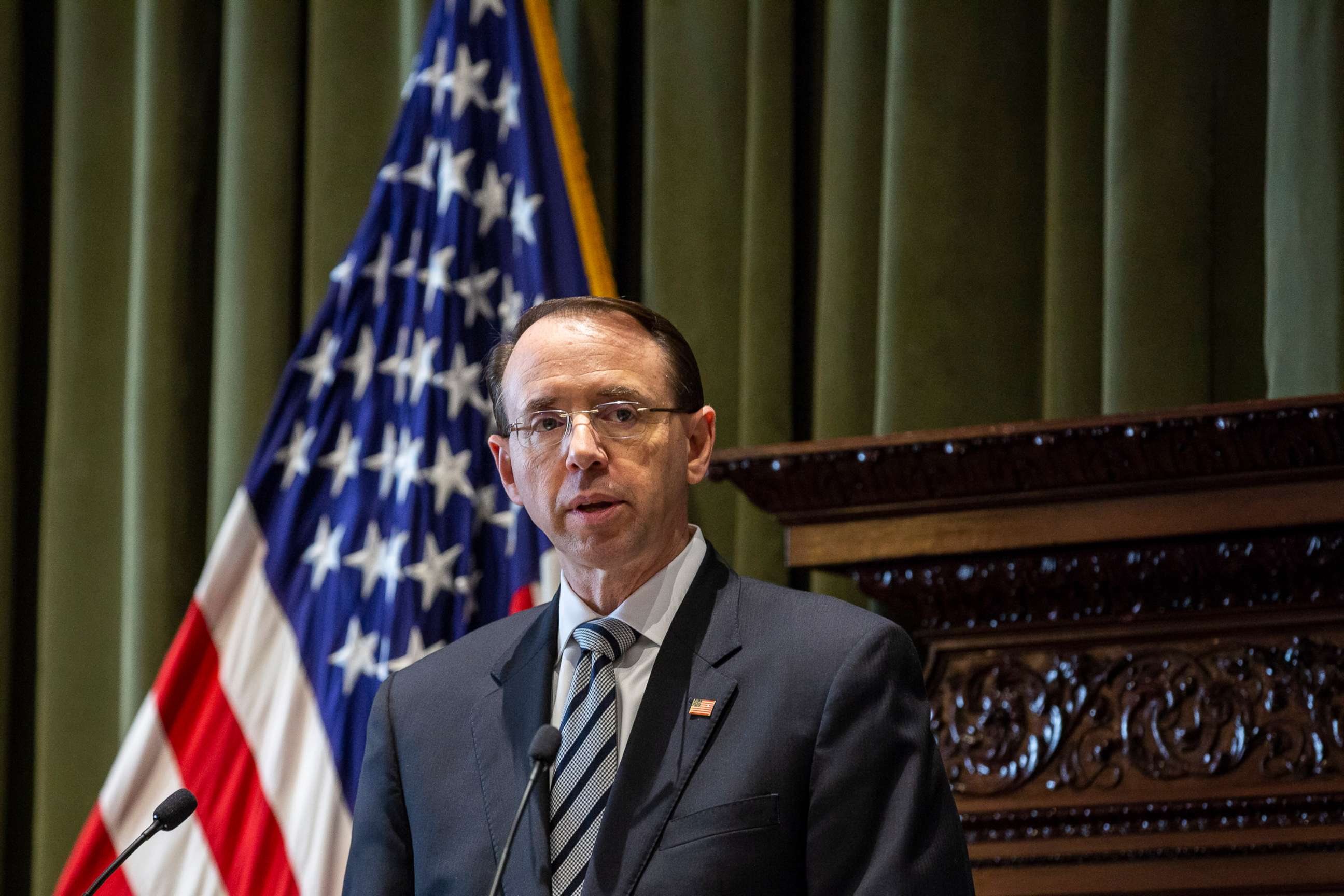Trump's lawyer calls for 'a time out' in Mueller probe if Rosenstein leaves post
Sekulow called for a “a time out on this inquiry” if Rosenstein goes.
As speculation about Rod Rosentstein’s possibly imminent departure from the Justice Department reached a fever pitch on Monday, President Donald Trump’s personal attorney called for a pause in special counsel Robert Mueller’s probe should the deputy attorney general leave his post.
Speaking Monday on his radio program, Jay Sekulow called for a “a time out on this inquiry,” referring to Mueller’s investigation into Russian meddling during the 2016 campaign, adding that “it clearly becomes necessary and appropriate... that there be a step back taken here, and a review - and I think it’s a review that has to be thorough and complete” if Rosenstein is dismissed or resigns.
Rosenstein visited the White House on Monday and met with Chief of Staff John Kelly with the expectation that he would be fired, sources told ABC News, but he remained in the post as of Monday afternoon.
The news came on the heels of reporting that at two separate meetings attended by both Rosenstein and then-acting FBI Director Andrew McCabe the day before Mueller was appointed in May 2017, Rosenstein suggested that McCabe or others wear a wire when speaking with the president, according to memos McCabe made of the conversation, sources familiar with the memos told ABC News. President Donald Trump fired James Comey as director the week before, the sources said.

Additionally, sources told ABC News that, according to the memos, Rosenstein raised the possibility of recruiting members of the president’s Cabinet to invoke the 25th Amendment to remove Trump from office for being unfit. Rosenstein said he thought he would be able to persuade Attorney General Jeff Sessions and then-Homeland Security Secretary John Kelly to sign on, according to the sources.
Rosenstein issued statements on Friday denying that there was a basis to invoke the 25th amendment and denying that he took any action to pursue secret recordings of Trump. His statements, however, did not deny that Rosenstein raised the prospect of using the 25th amendment or a wire to record the president.
And Rosenstein may not be out of the woods with the White House: the president has already spoken to another official about becoming the acting deputy attorney general, sources told ABC News, and Rosenstein is expected to meet Trump in person on Thursday “to discuss the recent news stories,” White House press secretary Sarah Sanders said in a statement.
Sekulow’s comments on Monday reflect an ongoing campaign from President Trump’s legal team, which includes Rudy Giuliani, to call for an end to Mueller’s probe. Discussions over whether and how Trump would interview with the special counsel have lasted more than a year as numerous self-imposed deadlines from Giuliani and others have come and gone.
As the midterm elections approach, Mueller’s team may feel another source of pressure: time.
As the Justice Department inspector general recently detailed, many federal prosecutors and investigators follow a “longstanding unwritten practice” of avoiding overt actions 60 or 90 days before an election if those actions could impact the election’s outcome. However, some prosecutors believe such restraint should apply to investigative actions against a candidate on a ballot, not investigative steps involving political figures in general.
“No Department policy contains a specific prohibition on overt investigative steps within a particular period before an election,” according to the inspector general.
Regardless, in late August, Giuliani tweeted, “Just a few days before 60 day run-up to 2018 elections. If Mueller wants to show he’s not partisan, then issue a report on collusion and obstruction.”
ABC News' Mike Levine, Pierre Thomas, John Santucci, and Jonathan Karl contributed reporting.